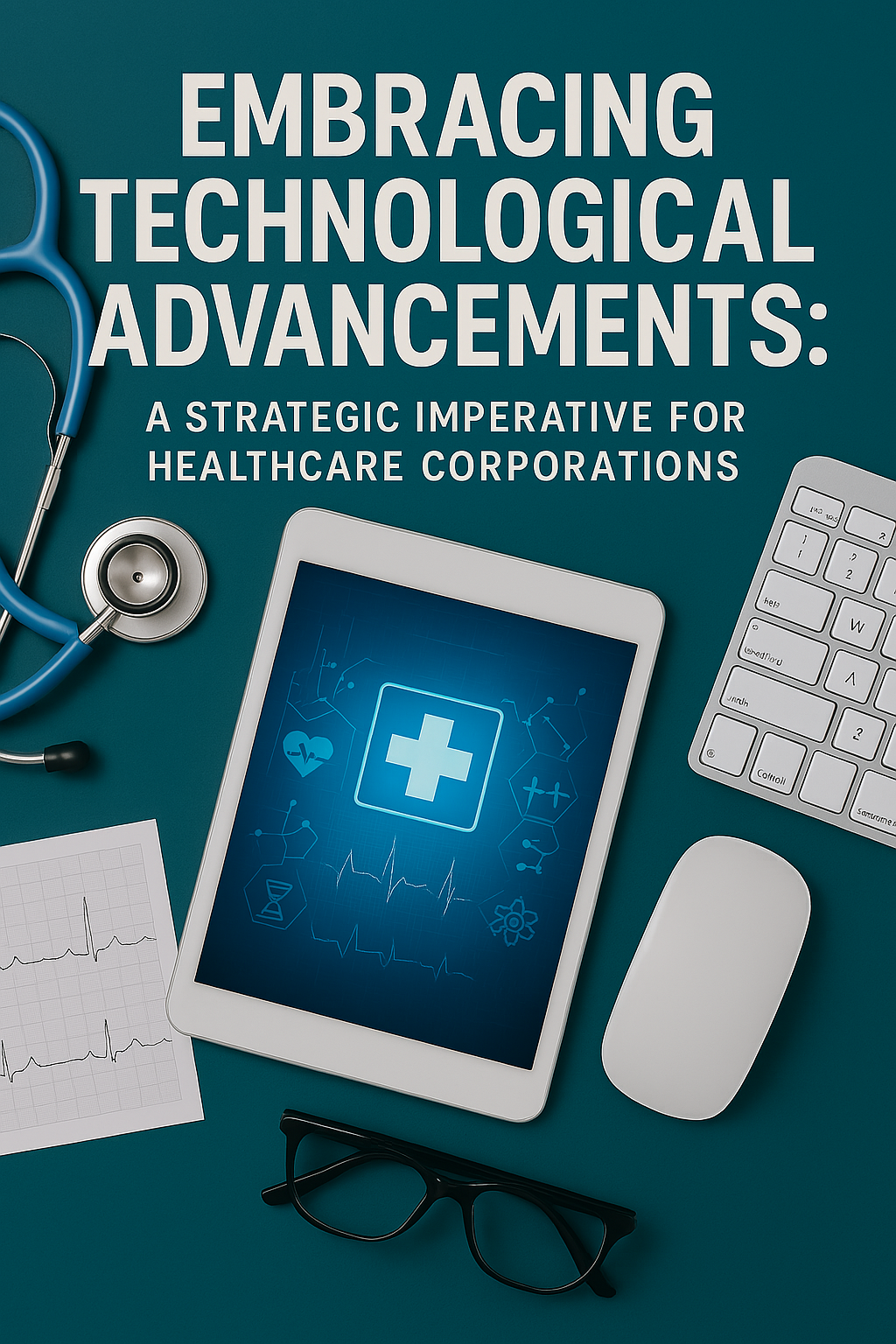In the ever-evolving landscape of healthcare, technology has become a cornerstone of innovation and progress. For corporations operating in this space, staying ahead in the race for technological advancement is not merely an option but a necessity. From enhancing patient care to optimizing operational efficiency, the strategic adoption of technology can define a company’s success in the healthcare sector.
Transforming Patient Care
At the heart of healthcare lies the commitment to improving patient outcomes, and technology is proving to be a powerful enabler of this goal. Advancements such as telemedicine, wearable health devices, and AI-driven diagnostic tools are reshaping how care is delivered. These technologies bridge the gap between patients and providers, making healthcare more accessible and personalized.
For instance, wearable devices that monitor real-time health metrics allow patients to take charge of their health, while physicians gain valuable data for informed decision-making. Similarly, telemedicine platforms have democratized access to healthcare, particularly in underserved areas, by reducing geographical and financial barriers.
Driving Operational Efficiency
Healthcare organizations face mounting pressures to optimize resources while maintaining high-quality care. Technology offers solutions that streamline operations and reduce costs. Electronic health records (EHRs), for example, centralize patient information, ensuring that care teams have access to accurate and up-to-date data.
Automation and artificial intelligence (AI) are also playing pivotal roles in improving operational workflows. From automating administrative tasks to analyzing vast datasets for predictive insights, these technologies free up human resources to focus on higher-value tasks.
Enhancing Research and Development
Innovation in healthcare depends heavily on research and development (R&D), and technology is accelerating this process. AI and machine learning algorithms can analyze complex biological data at unprecedented speeds, identifying potential drug candidates and reducing time-to-market for new therapies.
For example, AI has been instrumental in the development of mRNA vaccines, which were rolled out in record time during the COVID-19 pandemic. Similarly, virtual clinical trials, enabled by digital platforms, are making the R&D process more efficient and inclusive by reaching a broader pool of participants.
Addressing Regulatory and Security Challenges
The integration of advanced technologies in healthcare also brings challenges, particularly around regulatory compliance and data security. Corporations must navigate complex regulatory frameworks to ensure that their innovations meet stringent standards for safety and efficacy.
Data security is another critical concern. With the increasing digitization of health information, the risk of cyberattacks has grown. Robust cybersecurity measures, coupled with compliance with standards like HIPAA and GDPR, are essential to protect sensitive patient data and maintain trust.
The Role of Leadership in Technological Transformation
Adopting technology requires not just financial investment but also a cultural shift. Leaders within healthcare corporations play a crucial role in fostering a culture of innovation and adaptability. By championing change, investing in employee training, and aligning technological initiatives with organizational goals, leaders can ensure successful implementation and long-term impact.
A Strategic Imperative
The integration of technology in healthcare is no longer a competitive advantage but a strategic imperative. As the industry faces challenges such as rising costs, aging populations, and the demand for personalized care, technology offers solutions that are both transformative and sustainable.
For healthcare corporations, the path forward lies in a proactive approach to technological advancement. By staying ahead of the curve, they can not only improve patient outcomes and operational efficiency but also cement their position as leaders in a rapidly changing industry.
Conclusion
In the healthcare space, the importance of technological advancement cannot be overstated. It is the driving force behind improved patient care, streamlined operations, accelerated innovation, and enhanced security. For corporations willing to embrace this evolution, the rewards are substantial: better health outcomes, greater operational resilience, and a brighter future for all stakeholders in the healthcare ecosystem.

